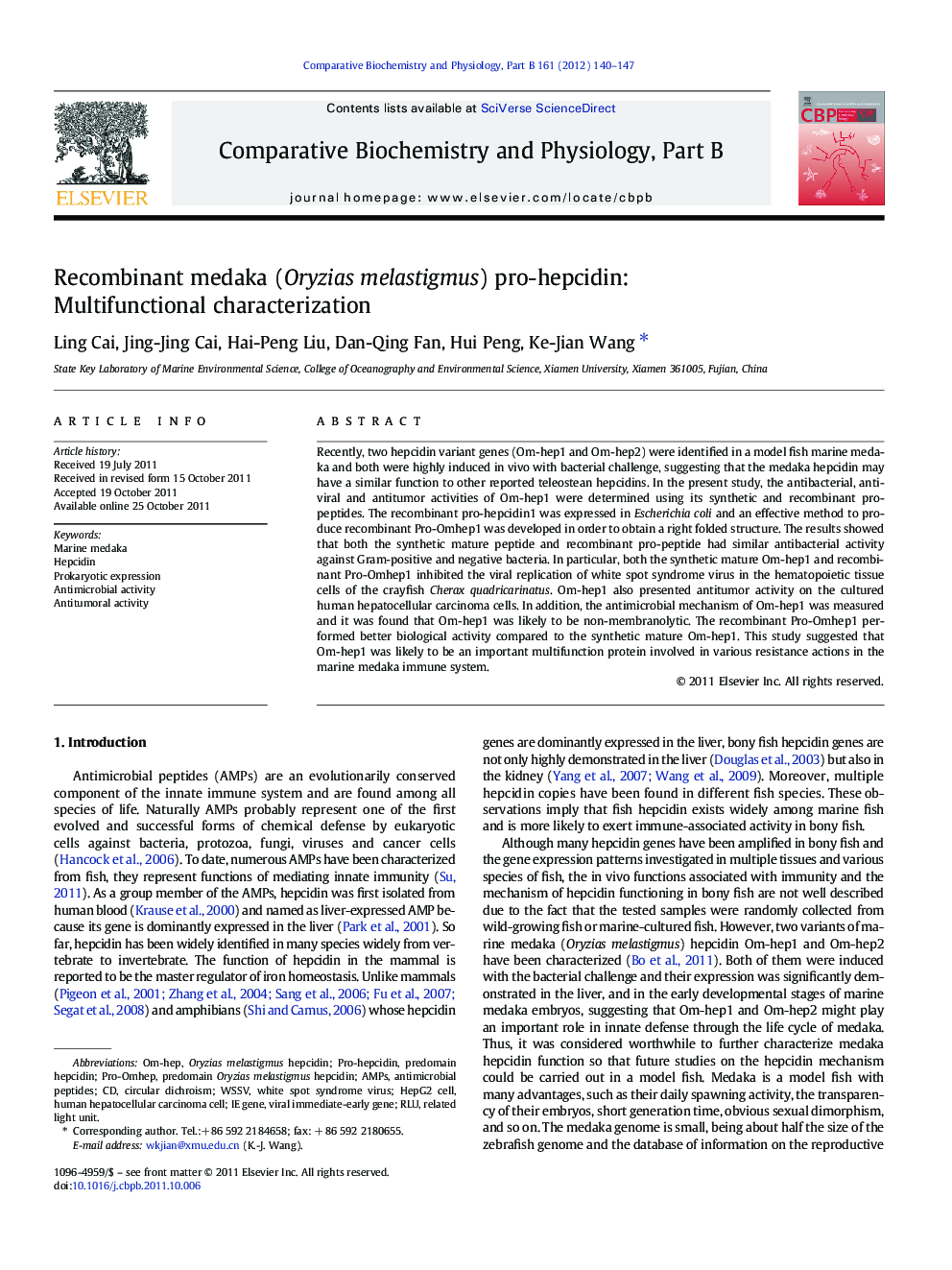| Article ID | Journal | Published Year | Pages | File Type |
|---|---|---|---|---|
| 1975596 | Comparative Biochemistry and Physiology Part B: Biochemistry and Molecular Biology | 2012 | 8 Pages |
Recently, two hepcidin variant genes (Om-hep1 and Om-hep2) were identified in a model fish marine medaka and both were highly induced in vivo with bacterial challenge, suggesting that the medaka hepcidin may have a similar function to other reported teleostean hepcidins. In the present study, the antibacterial, antiviral and antitumor activities of Om-hep1 were determined using its synthetic and recombinant pro-peptides. The recombinant pro-hepcidin1 was expressed in Escherichia coli and an effective method to produce recombinant Pro-Omhep1 was developed in order to obtain a right folded structure. The results showed that both the synthetic mature peptide and recombinant pro-peptide had similar antibacterial activity against Gram-positive and negative bacteria. In particular, both the synthetic mature Om-hep1 and recombinant Pro-Omhep1 inhibited the viral replication of white spot syndrome virus in the hematopoietic tissue cells of the crayfish Cherax quadricarinatus. Om-hep1 also presented antitumor activity on the cultured human hepatocellular carcinoma cells. In addition, the antimicrobial mechanism of Om-hep1 was measured and it was found that Om-hep1 was likely to be non-membranolytic. The recombinant Pro-Omhep1 performed better biological activity compared to the synthetic mature Om-hep1. This study suggested that Om-hep1 was likely to be an important multifunction protein involved in various resistance actions in the marine medaka immune system.
